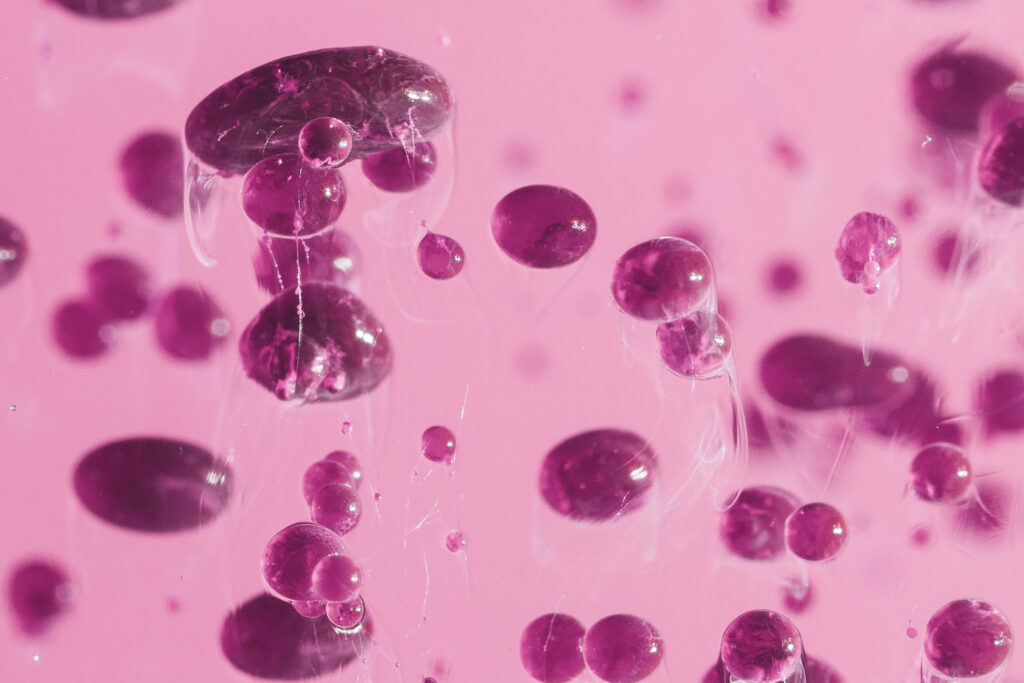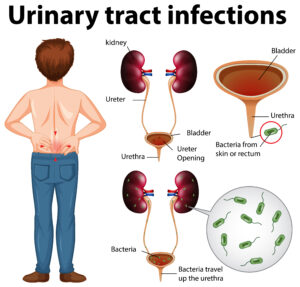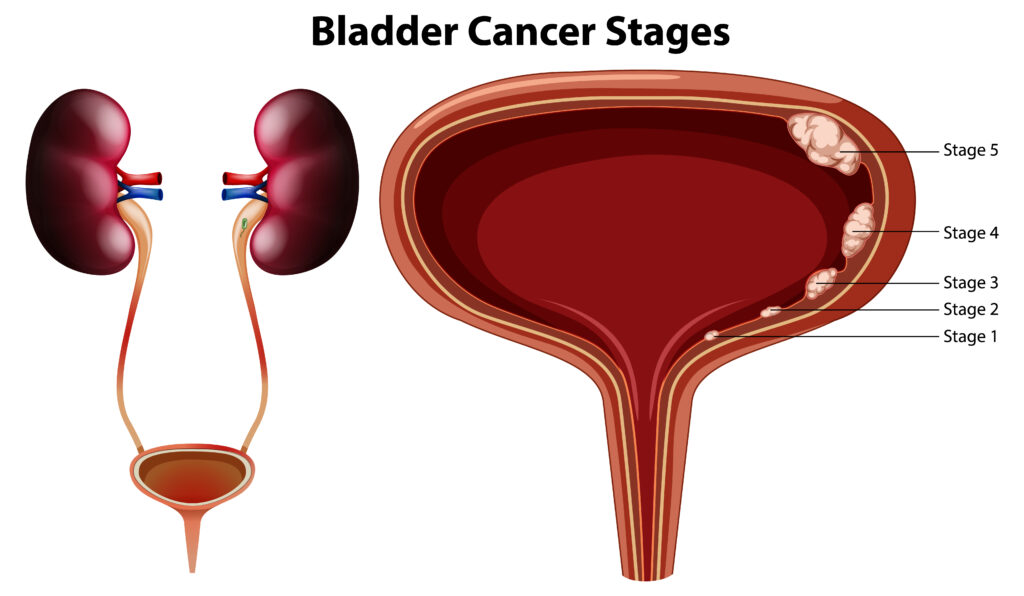What is bladder cancer?
Bladder cancer is a type of cancer that begins in the cells of the bladder, which is the organ responsible for storing urine before it leaves the body. It usually starts in the innermost layer of the bladder and can spread to other parts of the body if left untreated. The most common type of bladder cancer is transitional cell carcinoma, which begins in the cells lining the bladder. Symptoms of bladder cancer may include blood in the urine, frequent urination, pain during urination, and lower back pain. Risk factors for developing bladder cancer include smoking, exposure to certain chemicals, chronic bladder infection, and age. Treatment options for bladder cancer depend on the stage and severity of the disease but may include surgery, chemotherapy, radiation therapy, immunotherapy, or a combination of these methods. Early detection and treatment is important to improve outcomes and reduce the risk of complications.

types of bladder cancer


Bladder cancer can be classified into several types depending on the specific cells where the cancer originates.
Transitional cell carcinoma (TCC): This is the most common type, accounting for about 90% of bladder cancer cases. It begins in the transitional cells lining the inside of the bladder.
Squamous cell carcinoma: This type begins in thin, flat cells that can form in the bladder in response to irritation or infection. It accounts for a small percentage of bladder cancers.
Adenocarcinoma: This rare type begins in gland cells that produce mucus in the lining of the bladder.
Small cell carcinoma: Rare, this aggressive type of bladder cancer begins in the neuroendocrine cells of the bladder.
Bladder cancer usually develops when abnormal cells in the bladder grow and multiply out of control. Although the exact cause of bladder cancer is not always clear, several factors can increase the risk of developing this disease.

- Smoking: Tobacco smoke contains harmful chemicals that can be absorbed into the bloodstream and excreted in the urine, causing damage to the bladder lining and increasing the risk of bladder cancer.
- Age: The risk of bladder cancer increases with age, with most cases diagnosed in people over the age of 55.
- Gender: Men are more likely to develop bladder cancer than women, although the reasons for this difference are not fully understood.
- Chronic bladder inflammation or infection: Conditions such as frequent bladder infections or prolonged use of a urinary catheter can irritate the bladder lining and increase the risk of bladder cancer.
- Family history: A family history of bladder cancer may increase a person’s risk of developing the disease, indicating a possible genetic predisposition.
common symptoms of bladder cancer
Blood in the urine (hematuria): One of the most common symptoms of bladder cancer is blood in the urine, which may appear pink, red, or cola colored. This may occur intermittently and may not always be visible.
- Frequent urination: Bladder cancer can cause increased frequency of urination, even if the bladder is not full.
- Pain while urinating: Some individuals with bladder cancer may experience pain or a burning sensation while urinating.
- Strong urge to urinate: A sudden, intense urge to urinate, even when the bladder is not full, can be a symptom of bladder cancer.
- Pelvic or back pain: Advanced bladder cancer may cause pain in the pelvic area or lower back.
- Difficulty urinating: Bladder cancer can cause blockage of the urinary tract, resulting in difficulty starting or maintaining urination.
- Changes in urinary habits: Other changes in urinary habits may also occur, such as weak urine flow or inability to empty the bladder completely.
- If any of these symptoms persist or worsen, it is important to consult a health care professional, as early detection and treatment can significantly improve the outcomes of individuals with bladder cancer.
affected parts of bladder cancer
Bladder cancer mainly affects the bladder, which is a hollow organ in the lower abdomen that is responsible for storing urine before it leaves the body. Specific parts of the bladder that may be affected by cancer include.
- Urothelium: The inner layer of the bladder, known as the urothelium or transitional epithelium, is where most bladder cancers arise. This type of cancer is called transitional cell carcinoma (TCC) or urothelial carcinoma.
- Muscle layer: In some cases, bladder cancer can penetrate the muscle layer of the bladder wall. This is called aggressive bladder cancer. When cancer cells invade the muscle layer, it can increase the risk of cancer spreading to other parts of the body.
- Connective tissue: Bladder cancer can also spread into the connective tissue surrounding the bladder, known as the lamina propria. This can happen if the cancer is aggressive and penetrates beyond the inner lining of the bladder.
- Nearby organs: In advanced stages of bladder cancer, cancer cells may spread to nearby organs and tissues, such as the prostate (in men), uterus (in women), ureters, or nearby lymph nodes. .
Stages of bladder cancer
Bladder cancer staging is a system used by health professionals to describe the extent and spread of cancer. The stages of bladder cancer generally range from stage 1 to stage 5 , with each stage indicating progression of the disease. Here’s an overview of the steps:
- Stage 1 (Carcinoma in Situ – CIS): Cancer cells are found only in the inner layer of the bladder (urothelium) and have not invaded deeper layers of the bladder wall.
- Stage 2: Cancer cells have invaded the connective tissue layer beneath the urothelium, but have not spread to the muscle layer of the bladder wall.
- Stage 3: Cancer has spread to the muscle layer of the bladder wall but has not reached nearby tissues or organs.
- Stage 4: Cancer has spread beyond the bladder to surrounding tissues or organs, such as the prostate (in men), uterus (in women), pelvic wall, or lymph nodes in the pelvis.
- Stage 5: Cancer has spread to distant organs or tissues, such as the liver, lungs, bones, or lymph nodes outside the pelvis. Stage IV bladder cancer is considered advanced or metastatic.
Staging helps healthcare providers determine the appropriate treatment approach and prognosis for individuals with bladder cancer. Depending on the stage of the cancer and the overall health of the person, treatment options may include surgery, chemotherapy, radiation therapy, immunotherapy, or a combination of these treatments. It is important for individuals with bladder cancer to work closely with their healthcare team to develop an individualized treatment plan tailored to their specific situation and needs.

May helps Natural diet for bladder cancer patients
For individuals with bladder problems, including those with bladder cancer, maintaining a healthy diet may be beneficial. Here are some dietary recommendations that may aid bladder health.
- Hydration: Drink plenty of fluids, especially water, to help keep the bladder clear and reduce the concentration of substances in the urine that can irritate the bladder lining. Aim to drink about 8 glasses of water per day, but adjust this based on individual needs and any specific recommendations from a healthcare provider.
- Fruits and vegetables: Include a variety of fruits and vegetables in your diet, as they are rich in vitamins, minerals, antioxidants and fiber, which can promote overall health and aid bladder function. Berries, leafy vegetables, carrots and citrus fruits are especially good choices.
- Whole grains: Choose whole grains like brown rice, quinoa, oats and whole wheat bread instead of refined grains. Whole grains are high in fiber and nutrients, which can help regulate digestion and promote a healthy urinary system.
- Lean Protein: Choose lean protein sources like poultry, fish, tofu, beans and legumes. These foods provide essential amino acids without adding excessive saturated fats, which can contribute to inflammation.
- Low-fat dairy or alternatives: Choose low-fat or fat-free dairy products such as milk, yogurt and cheese, or dairy alternatives such as almond milk or soy milk. These alternatives provide calcium and protein without the added saturated fat found in full-fat dairy products.
- Limit irritating substances: Certain foods and beverages can irritate the bladder and worsen bladder symptoms. Common irritants include spicy foods, caffeine, alcohol, carbonated drinks, artificial sweeteners, and acidic foods such as tomatoes and citrus fruits. Limiting or avoiding these triggers can help reduce bladder discomfort.
- Herbal teas: Some herbal teas, such as chamomile or peppermint tea, may have soothing properties and can be enjoyed in moderation as part of a bladder-friendly diet.
Tips for bladder cancer patient in life
Living with bladder problems, whether caused by bladder cancer or other conditions, can present challenges, but there are several tips that can help improve the quality of life for bladder patients.
- Stay hydrated: Drink plenty of water throughout the day to keep urine diluted and reduce bladder irritation. However, avoid excessive fluid intake before bed to reduce nighttime bathroom visits.
- Follow a bladder-friendly diet: As mentioned earlier, avoid or limit bladder irritants like caffeine, alcohol, spicy foods, and acidic foods, and eat bladder-friendly foods like fruits, vegetables, whole grains, and lean proteins. Focus on incorporating foods into your diet.
- Practice good bathroom habits: Go to the bathroom when you feel the urge and try to empty your bladder completely every time you urinate. Avoid holding urine for long periods of time, as this can increase the risk of urinary tract infection and bladder irritation.
- Maintain a healthy weight: Excess weight can put pressure on the bladder and worsen bladder symptoms. Aim to maintain a healthy weight through a balanced diet and regular exercise.
- Pelvic floor exercises: Strengthening the pelvic floor muscles through exercises such as Kegels can help improve bladder control and reduce urine leakage.
- Manage stress: Stress can aggravate bladder symptoms, so practicing stress-reduction techniques such as deep breathing, meditation or yoga may be beneficial.
- Quit smoking: If you smoke, quitting can help reduce your risk of bladder cancer and improve overall bladder health.
- Get help: Joining support groups or seeking counseling can provide emotional support and practical tips for managing life with bladder problems.
- Communicate with healthcare providers: Be open and honest with your healthcare team about your symptoms and concerns, and follow their recommendations for treating and managing your condition.
- Be proactive about health care: Participate in regular checkups and screenings, and tell your health care provider promptly about any changes in bladder symptoms.
conclusion
Ultimately, management of bladder cancer requires a multidisciplinary approach that includes both medical treatment and lifestyle adjustments. Adopting a bladder-friendly diet rich in hydrating fluids, fruits, vegetables, whole grains and lean proteins can help reduce symptoms and support overall bladder health.
Additionally, implementing practical tips such as staying hydrated, adopting good bathroom habits, maintaining a healthy weight, and managing stress can further improve the quality of life of bladder cancer patients. It is important for individuals with bladder cancer to work closely with their healthcare providers to develop a comprehensive treatment plan that addresses their specific needs and preferences. By incorporating these dietary and lifestyle changes into daily routines, bladder cancer patients can optimize their well-being and improve their prognosis.
Disclaimer: The information provided here is for educational/awareness purposes only and is not intended to be a substitute for medical treatment by a healthcare professional and should not be relied upon to diagnose or treat any medical condition. The reader should consult a registered medical practitioner to determine the appropriateness of the information and before consuming any medication .health-live.store does not provide any guarantee or warranty (express or implied) regarding the accuracy, adequacy, completeness, legality, reliability or usefulness of the information; and disclaims any liability arising thereof.